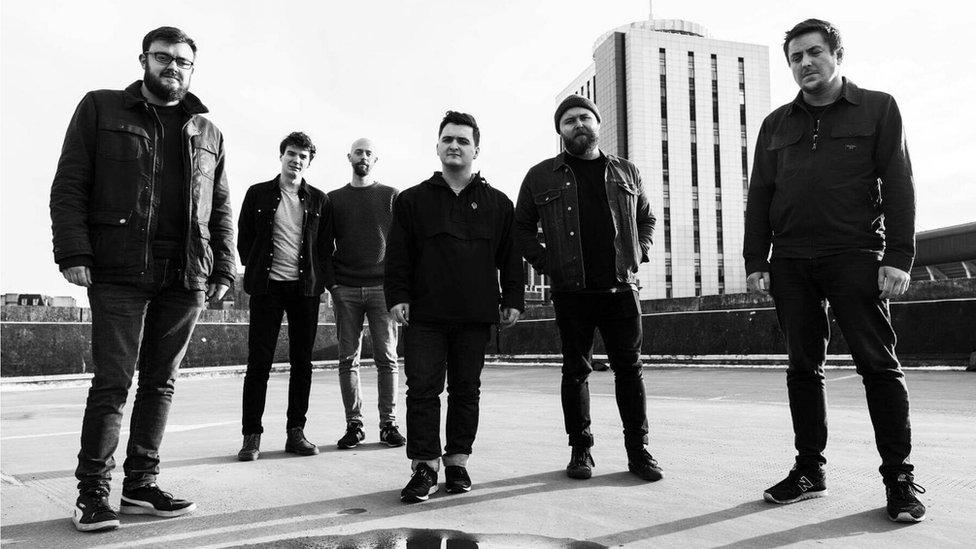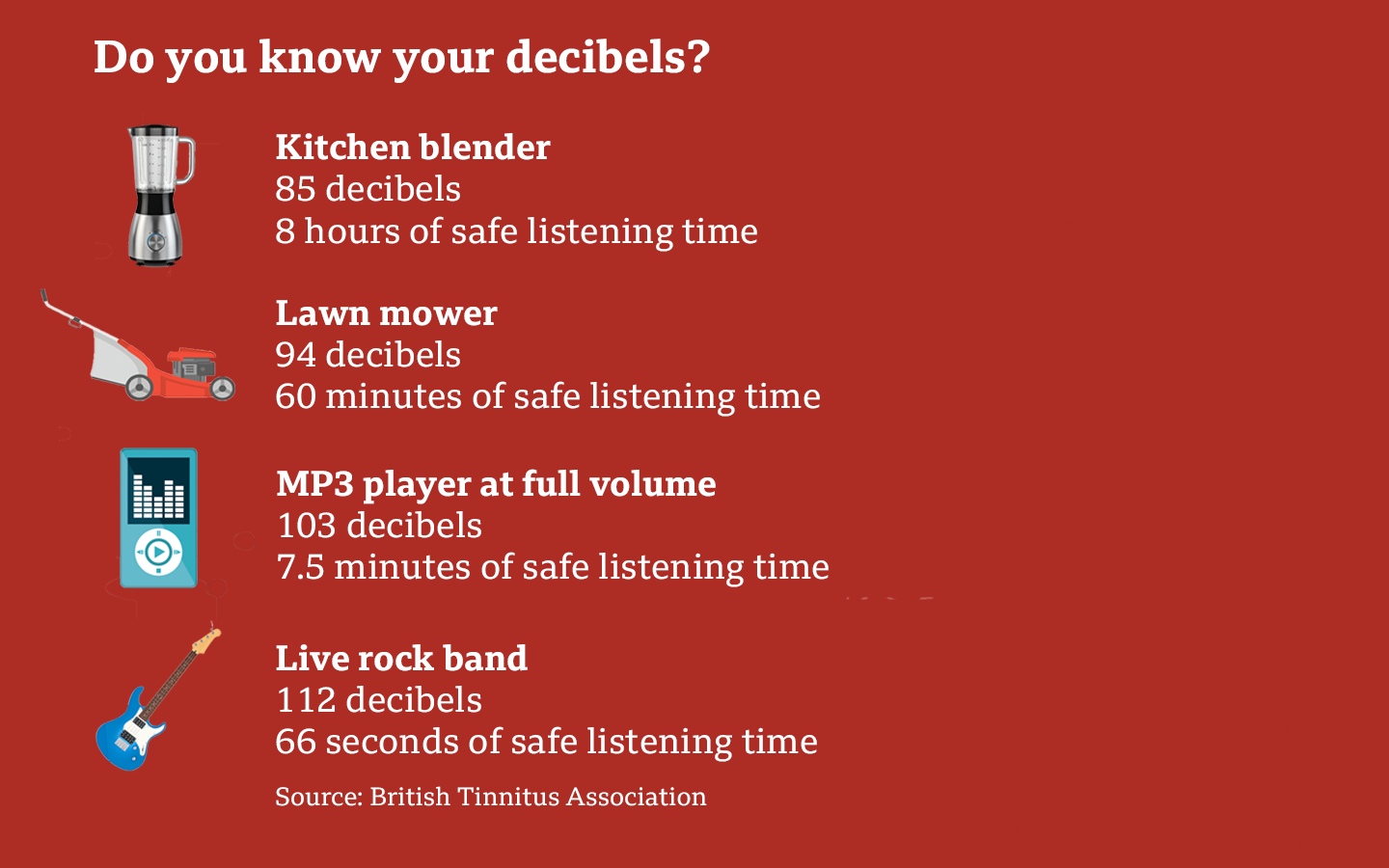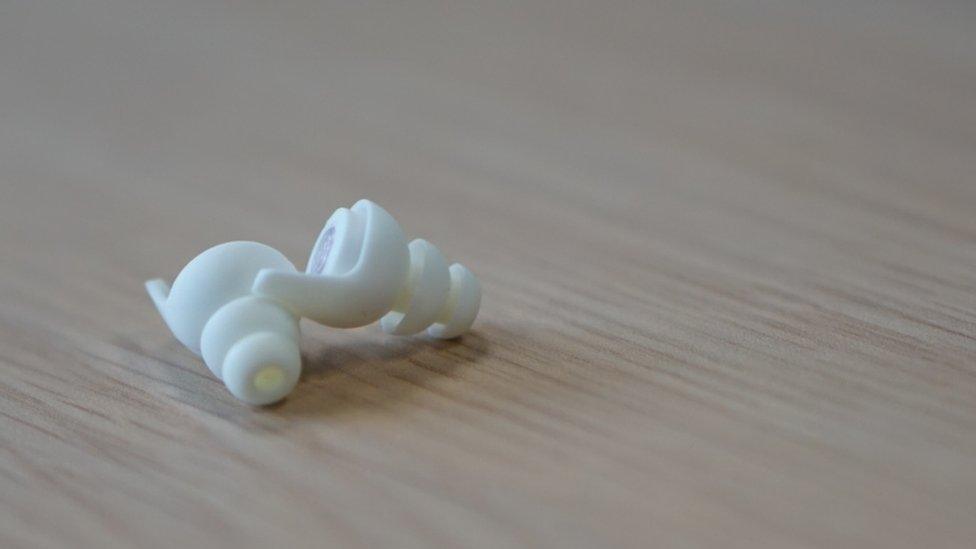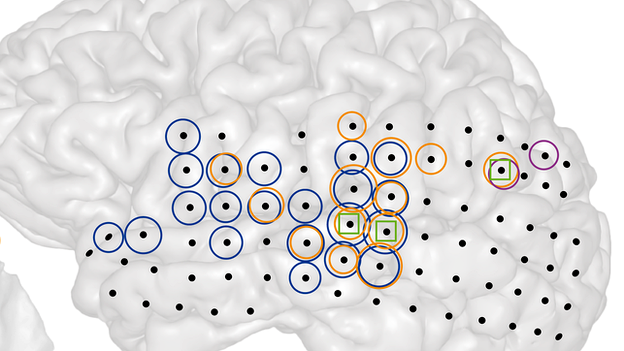Tinnitus: Warning for music fans attending concerts
- Published

Musician Nathaniel Ernest has had tinnitus for the past eight years
Young music lovers are being warned about the dangers of loud noise at concerts and festivals which could cause permanent hearing damage.
About one in 10 people in the UK have tinnitus and Cardiff-based audiologist Sonja Jones said it was important to wear hearing protection at loud events.
She said ear plugs - offered by many venues - were seen as "uncool" by some.
Musician Nathaniel Ernest, 26, from Cardiff, struggled to sleep after getting tinnitus when he was 18.
He and a friend went to a gig in 2011 - neither wore ear plugs and both came out with ringing in their ears.
Mr Ernest said he had ringing in his ears after gigs and nights out before, but it always went away.
This time it didn't.

Nathaniel makes his band mates in Breichiau Hir wear ear plugs when rehearsing and performing
He said: "Both our ears were pretty busted afterwards. The next couple of days mine didn't go away, his did.
"After about a year I thought this is permanent now. This is going to suck forever.
Sleeping became a real problem and he was reluctant to go anywhere where there is loud noise. Even a trip to the pub was difficult as he struggled to hear people talking.
Mr Ernest said he eventually got used to the high pitched ringing in his ears over time.


What is tinnitus?
Hearing sound in one ear, both ears or in the head that does not come from an external source
Usually linked to hearing loss caused by ageing or exposure to loud noise, but it can be a symptom of other conditions
There is no cure
Over time, people can go through a process called habituation where the brain can tune out the sound of tinnitus
Source: Action on Hearing Loss, external


Audiologist Sonja Jones said ear protection costs less than a trip to the cinema
In a bid to combat this problem, a number of venues in Wales, including the Motorpoint Arena and Tramshed in Cardiff and Venue Cymru in Llandudno, Conwy county, offer hearing protection on request.
Ms Jones said: "Wearing ear plugs will protect your hearing and may prevent any further damage. You can actually hear the music better than you did before with filtered noise plugs.
"Filtered noise plugs allow you to hear the band, just a bit quieter."

Ear plugs such as these have removable filters which reduce the sound level without changing the quality
- Published5 February 2019

- Published23 April 2015
